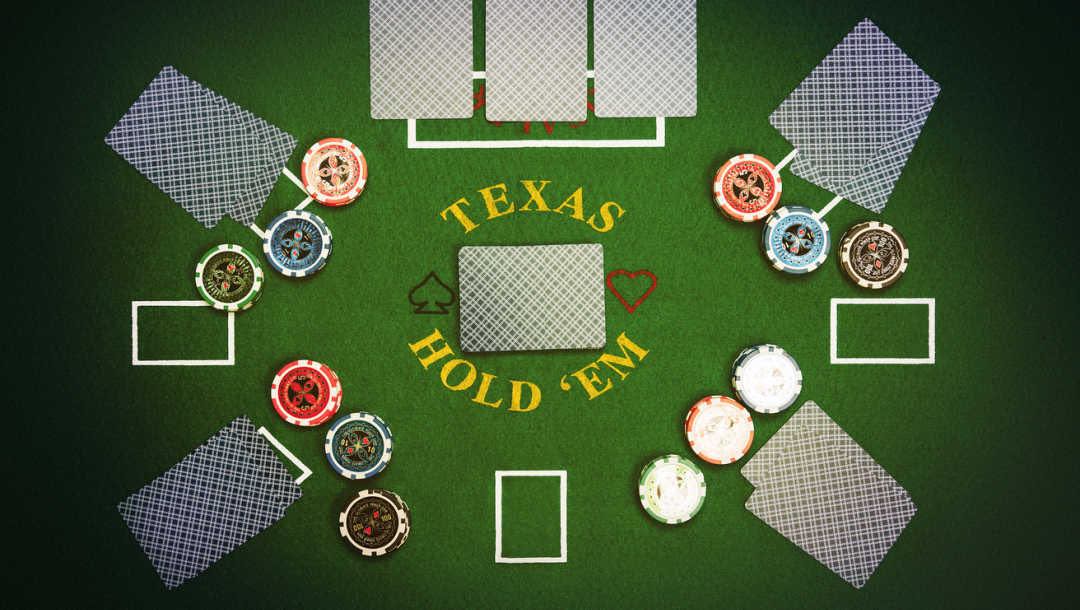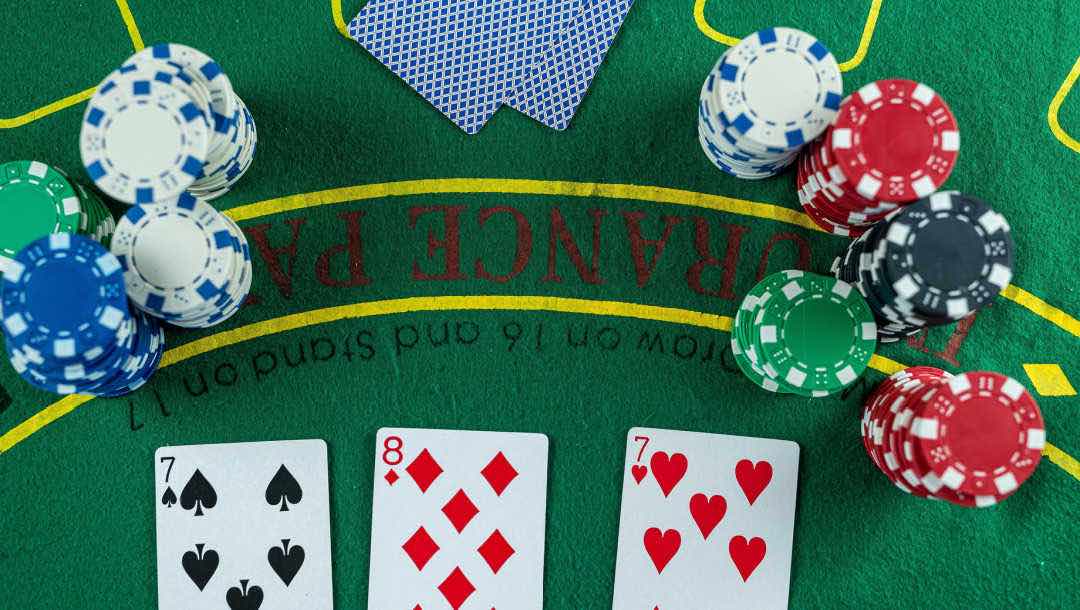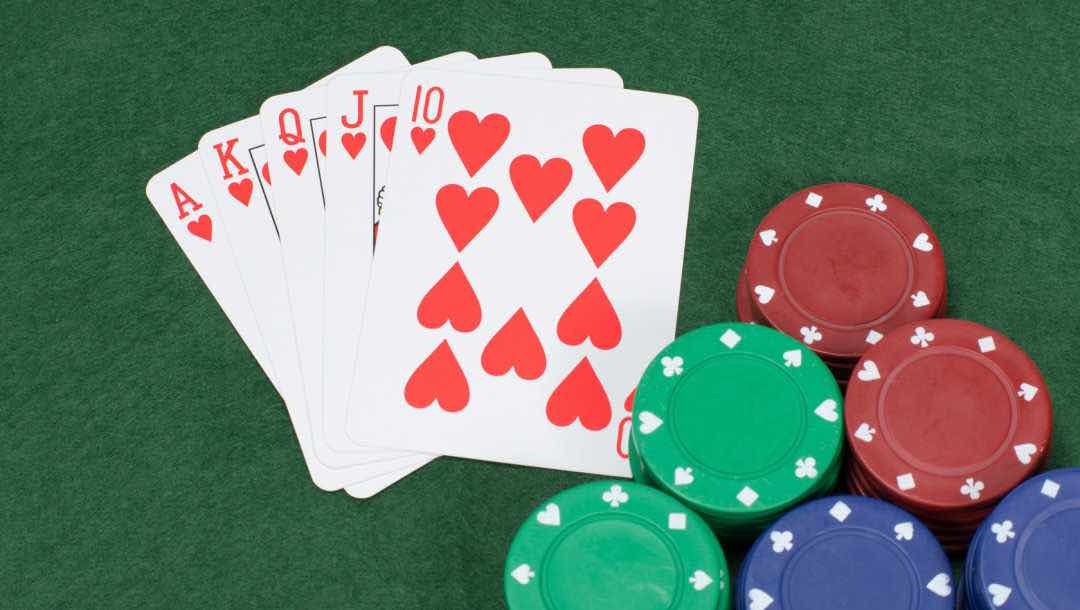
To be successful at poker, one must play beyond the cards in one’s hands. Although it’s tempting to become over-optimistic when holding a strong hand (like an ace-king, for example,) it’s the community that should influence your every move. Sometimes low-ranking cards have a better chance of succeeding, depending on what’s placed down by the dealer.
In online poker, as with in-person poker, understanding elements such as the nut hand, hand ranges and blockers are vital to separate yourself from the competition. For beginners, understanding these can rapidly elevate their game and strategy. Additionally, professional players are constantly adjusting their poker strategy to unpredictable players, whether high-stakes or low-stakes poker. Read on as we discuss everything you need to know about blockers.
What Is a Blocker in Poker?

So, what is a blocker in poker? Simply put, it’s the idea of reducing the likelihood of a strong hand in your opponent’s range. It’s a great way of minimizing the risk (when going to the end of a round) and utilizing this strategy can allow you to become more of a threat.
For example, if you’re holding an ace of clubs and jack of hearts and the flop produces three clubs, your ace blocks the nut hand: an ace-high flush.
A straight is another classic case in which a blocker can be useful. Picture the community cards showing 6-7-9-10. If you have an 8, it means you’re blocking your opponents from achieving a straight because it’s less likely that they’ll have the connecting card.
Whether it’s a full house, straight and flush, three of a kind or a two-pair, there are many instances in which blockers can come to the rescue and dictate your next move. In most cases, they influence the way certain hands are played. Why? Because it becomes harder for your opponents to have strong hands, meaning they’re more likely to fold.
Pre-Flop vs Post-Flop Play
In most poker game strategies, decision-making is influenced by the pre-flop and post-flop. For instance, if you’re dealt pocket aces (ace-ace) and an opponent raises early, most experienced players would opt to call or re-raise if they’re likely to block their hand range. Remember, if you have pocket aces, the likelihood of opponents holding an ace is slim, meaning you can block most hands that require an ace (or a high card). To be effective with this strategy, it’s essential to understand your opponents’ preferred hand ranges.
If you notice an opponent consistently 3-betting on the pre-flop, using hands that block their value 3-betting range will be a great way to reduce the strength of their hand. This can be done through 4-betting.
Post-flop strategy is all about identifying the hand possibilities linked to the community cards. If the flop includes a 3 of hearts, 6 of clubs and 7 of clubs – apart from the low-ranking hands – two main possibilities exist: a straight or a flush. So, if you’re holding a 5 or two clubs, you can block your opponents from having the nut hand. Not having the nut hand can alter the betting behavior of opponents, even when holding a strong hand. Sometimes the perception of someone else having the nut hand is enough to make them fold.
Advanced Poker Strategies

If you’ve played online poker tournaments you’ll know that it requires simultaneously facing several players from a range of backgrounds. To improve your chances of success and reduce the possibility of going bust early, it’s crucial to incorporate reliable strategies.
Utilizing blockers can lead to several advanced poker strategies, from turning hands into bluffs and blocking or deciding on a 3-bet or 4-bet preflop to making thin calls based on your blocker cards. These strategies are most effective when you’re facing a large bet or experiencing narrow ranges because if there are fewer hands in the range, holding a blocker will have a considerable effect on your opponent’s hand.
Additionally, blockers can help you succeed in bluffing situations. When you’re holding a blocker to a particular hand, it’s less likely that your opponent will call your bluff because they need your card.
A similar logic applies to hero calls, except that you’re calling your opponent’s bluff. Some players attempt to create the perception of having the nut hand when in actual fact they don’t. So, if you’re head-to-head on the river with a blocker in hand and you have a hand combination yourself, don’t be afraid to be the hero and call their bluff.
Play Poker on BetMGM
Looking to develop and understand blocker strategies? With the option of both low-stakes and high-stakes games, playing poker online is the best way to become accustomed to using newly-discovered strategies and perfecting your overall game. Register today and enjoy playing whenever you want, 24/7.
In addition to poker, BetMGM also gives you access to a near-endless array of online casino games – from themed slots and bingo to roulette and blackjack. Play anywhere and anytime.
To be successful at poker, it’s crucial to play beyond the cards in your hand. We discuss everything you need to know about blockers.


